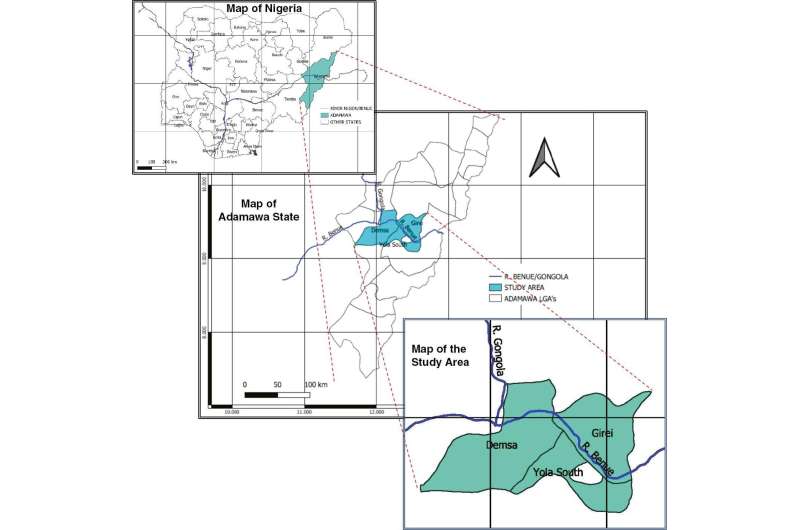This article has been reviewed according to Science X's editorial process and policies. Editors have highlighted the following attributes while ensuring the content's credibility:
fact-checked
proofread
Researchers study zoonotic enteric parasites among pastoralists, cattle and soil in northeastern Nigeria

The occupation, lifestyle and lack of formal education among pastoralists place them at higher risk of zoonoses. Moreover, zoonoses among pastoralists and their livestock in the Upper Benue Trough in northeastern Nigeria has not been studied holistically.
The authors of a new article published in Zoonoses investigated zoonotic enteric parasite (ZEP) infections by Entamoba spp., Cryptosporidium spp., Giardia intestinalis, Fasciola spp., Taenia spp. and Trichostrongylus spp. among this group.
Demographic information and fecal samples were collected from humans and cattle in 12 pastoral communities along the trough using a cross-sectional, observational study design. Soil samples were also collected from homes. Specimens were examined microscopically for ZEPs and the data were analyzed.
The prevalence of ZEPs was 40.3% among humans, 48.2% among cattle, and 74.6% in home soil. The prevalence of ZEP infections among humans did not differ significantly with respect to gender and husbandry practices, but did differ significantly with respect to age and clan. There was a strong correlation (R=0.750) between ZEP prevalence in humans, cattle, and soil across study communities.
The correlation between the distribution of ZEPs in different sample categories across communities strongly suggests that zoonotic transmission of ZEP is ongoing in the study area. Adopting an integrated approach to intervention will potentially be more effective in disease control. Further investigation, continuous monitoring, and surveillance are recommended to forestall enteric infection outbreaks.
More information: Sani Njobdi et al, Zoonotic Enteric Parasites among Pastoralists, Cattle, and Soil in the Upper Benue Trough of Northeastern Nigeria, Zoonoses (2023). DOI: 10.15212/ZOONOSES-2022-0051
Provided by Compuscript Ltd




















